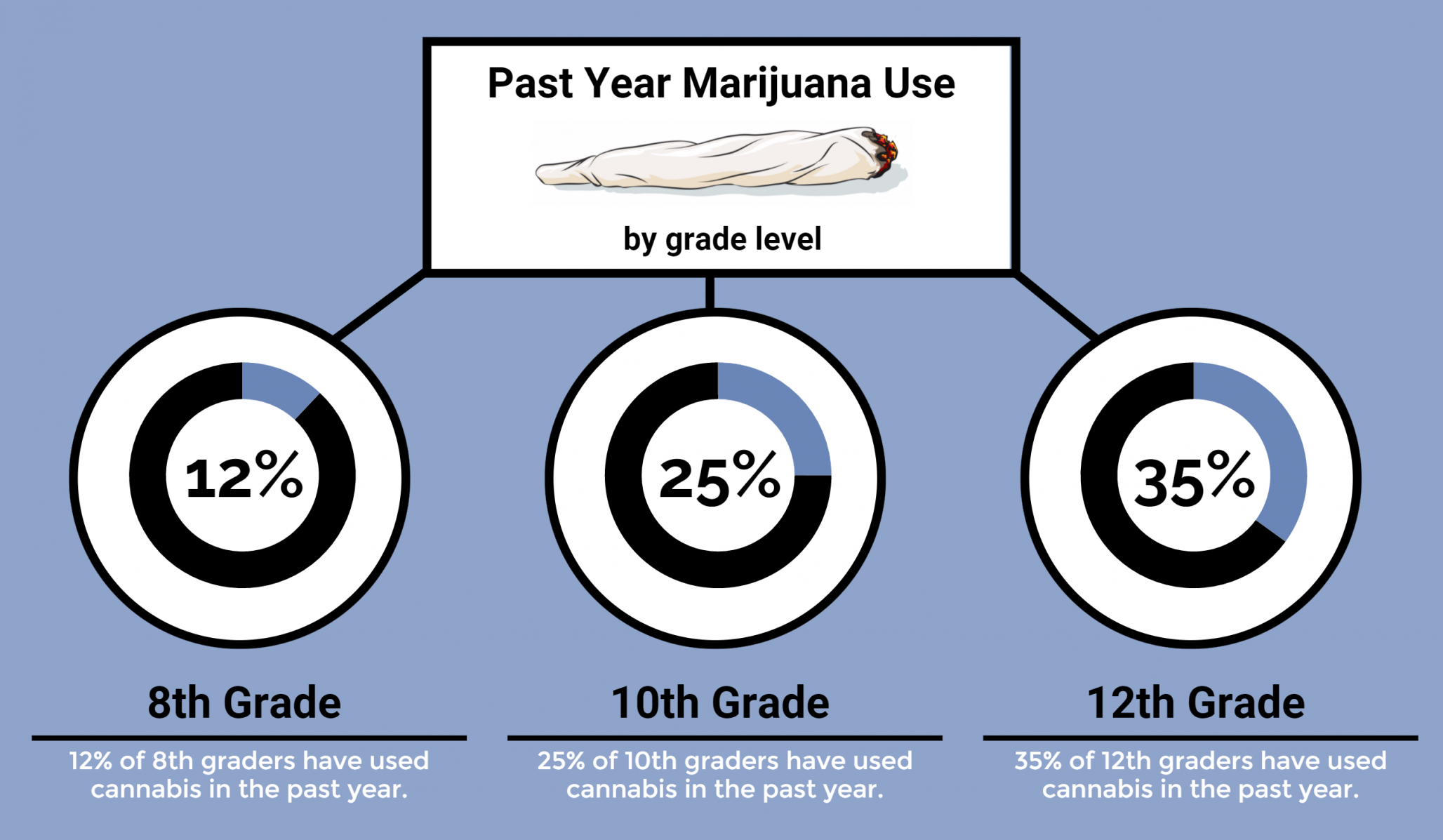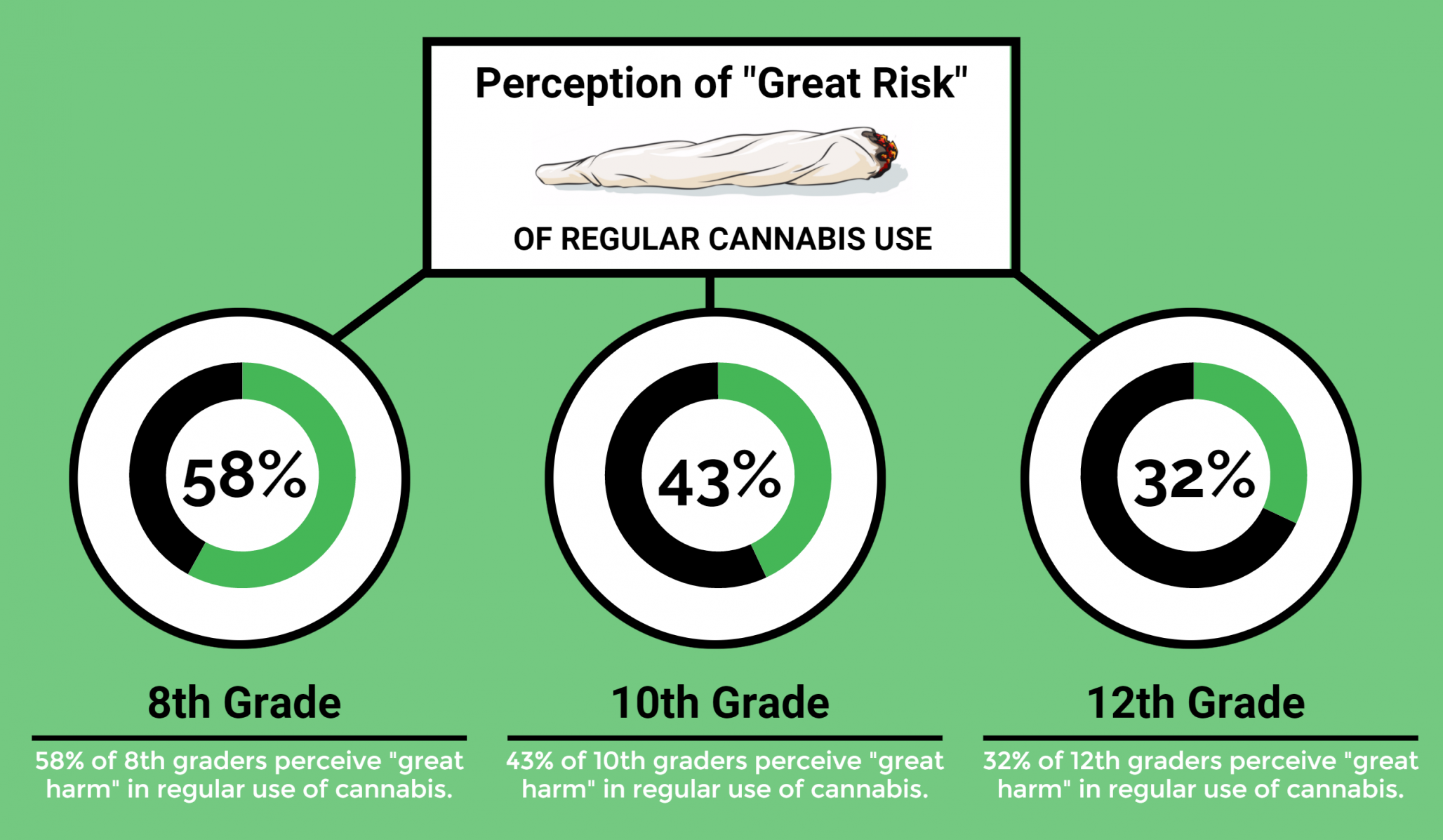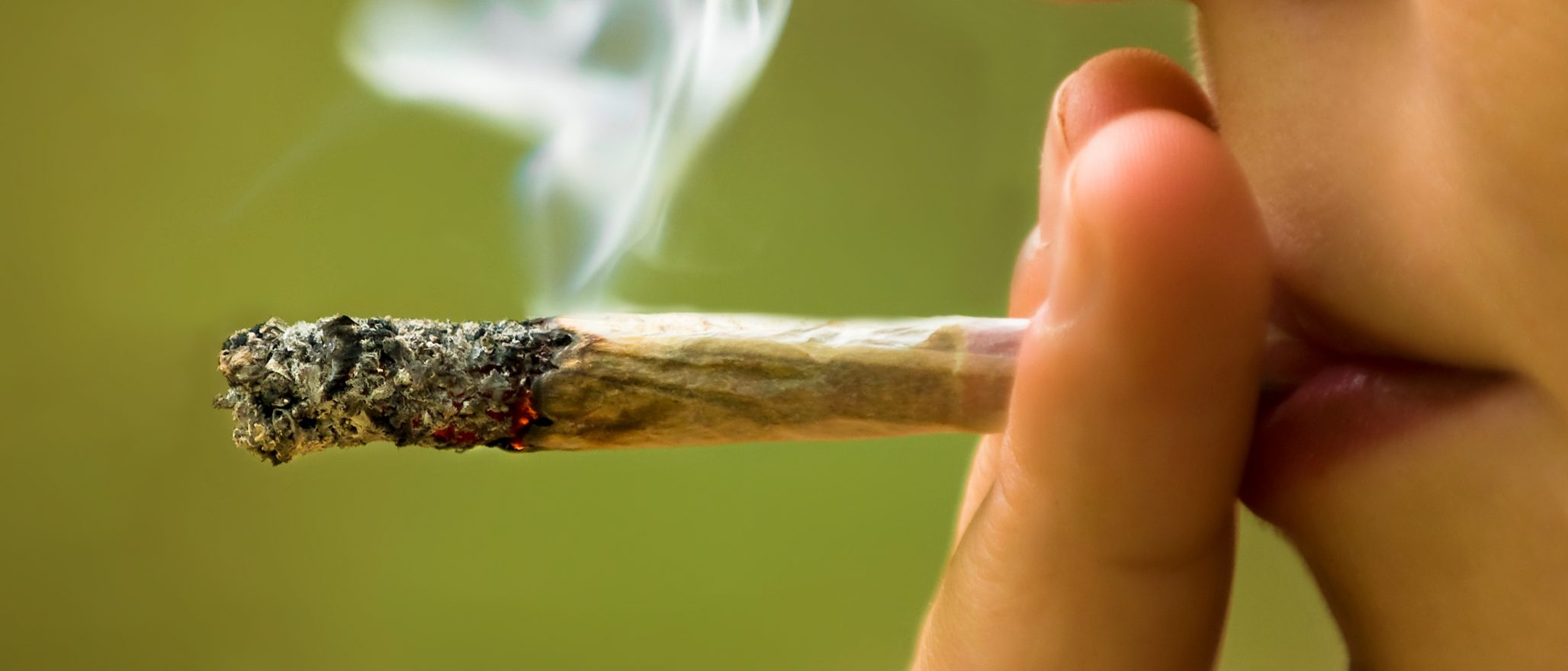GET HELP NOW
513.792.1272
Changing Attitudes Towards Marijuana

Monitoring the Future 2016 reports changing attitudes towards marijuana among teens across class, race and gender despite documented risks of teen cannabis use. In addition, the research found substance use and tolerant attitudes and beliefs about use, increase during the high school years. Monitoring the Future has been studying behaviors and attitudes of youth through adults in the area of substance use since 1975.
Use of Marijuana in the US
Marijuana use in the United States has been relatively stable over the past 5 years.

More than half of teens who used cannabis within the previous year also used within the previous 30 days. 6.5% of 8th graders, 14.8% of 10th graders, and 21.3% of 12th graders used within the last 30 days. 24.9% of 8th graders report having ever used cannabis. This percentage jumps to 51.4% of high school seniors reporting lifetime cannabis use. While use has not changed substantially, marijuana attitudes among teenagers and adults have moved towards greater acceptance.
Perception of Harm
The perceived risk of regularly smoking marijuana has declined across all grades. Furthermore, the percentage of teens who see great risk in smoking marijuana is at the lowest point ever recorded. Typically, within a few years of believing there is less harm in using, teens begin to use more often.

Alcohol remains the most widely used substance in 13 to 18 year olds, but marijuana continues to be a substance of choice. According to Monitoring the Future (2015), 80% of 12th graders said that they could get marijuana easily if wanted. This compares to 37% of 8th graders, and 66% 10th graders who report easy access to the drug.
Societal Influences
Social media, movies, and TV extol the successes of those who are regular marijuana uses. In the music industry, some of the most recognized and popular musicians, rappers and rock stars including Snoop Dogg, Willie Nelson, Miley Cyrus and Wiz Khalifa are advocates for the virtues of getting ‘high’. Other musicians like Cee Lo Green, Andre 3000, Paul McCartney and Lady Gaga have given up the drug for a variety of reasons.
Teens whose friends use marijuana are much more likely to use. Adolescents connect to their friends (and dealers) more than ever before due to social media and the ease of sending messages through private unmonitored apps. They are also closely watching how adults respond when marijuana legalization bills appear in various states.
Changing Attitudes Towards Marijuana
As a parent, the changing attitudes towards marijuana have an effect on your thinking and the parenting decisions you make. For an adult the risk of using marijuana on a recreational basis may be worth the enjoyment. For young adults (under 26) and teens, there are significant risks. The risk of use is highest for the youngest users and those who use regularly (weekly or more often).
Consider the following when you explain the risks to your child:
- Teens who are regular marijuana users can develop a dependency to the drug and may have mild to moderate withdrawal symptoms.
- Peer reviewed research articles (or internet sources) NEVER indicate that teen marijuana use is risk free. There are many risks; especially to teen users.
- The strength of marijuana has increased 20 times since 1978 and the use of extracts from marijuana in products like ‘dabs’, ‘budder’, ‘wax’, and ‘hash oil’ contain levels of THC (tetrahydrocannabinol- the psychoactive drug in cannabis) that can be as high as 90% pure.
- Adults who begin marijuana use regularly before 18 years old are more likely to be more dissatisfied with their adult life compared with those who never used or who waited to try marijuana until they were at least 26.
Changing attitudes towards marijuana doesn’t mean there are fewer risks to your teenager. ASAP is available to help you and your child when the use of marijuana or any drug becomes a problem and interferes with their life or your life. Call us at 513.792.1272 to set up an assessment or find out more about what we do.
References
RELATED POSTS
ASAP is Cincinnati's premiere outpatient treatment center for teenagers and their families struggling with substance abuse and mental health problems.
SUBSCRIBE
Enter your email address to receive news and information from ASAP.











